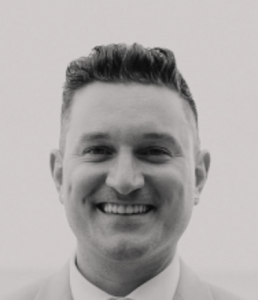
There is a probable association between air quality during forest fire season and emergency department visits for respiratory chief complaints, according to a new study led by UBC Department of Emergency Medicine (DEM) RCPSC-EM graduate Dr. Matt Douglas-Vail.
The study, “Association of air quality during forest fire season with respiratory emergency department visits in Vancouver, British Columbia”, was published in The Journal of Climate Change and Health.
The study examines the association that air quality during forest fire season had on emergency department (ED) visits in Vancouver, BC from January 1, 2009 – December 31, 2019, where the chief complaints were related to cardiac, respiratory and psychiatric/behavioral health. Wildfire smoke contains high levels of particulate matter and toxins – particularly carbon monoxide, nitrous oxide and benzene, which are known to have cardiovascular, respiratory, ophthalmic and psychiatric implications.
“I moved to British Columbia in the summer of 2018 and was shocked by the air quality fluctuations during forest fire season,” said Dr. Douglas-Vail. “Anecdotally, we saw many more sick patients in the ED when the air quality worsened.”
The study calls attention to the direct impact of climate change on health through several independent interactions, including changing patterns of disease and mortality, food insecurity, access to clean water, migration/displacement and increasing extreme weather events. All of these interactions combined are predicted to place an extreme burden on an already stressed healthcare system.
“In the ED we often see the most vulnerable patients,” said Dr. Douglas-Vail. “These patients are disproportionately affected by climate change and extreme weather events, so it’s vital that we study and understand these effects and how they impact our patients.”
Dr. Douglas-Vail hopes this work will generate more discussion on the impacts of extreme weather events on patients in BC and will lead to more research on climate health and the ED. He is particularly interested in the effect of air quality on mental health presentations to the ED.
DEM researchers Alex Jiang, Shannon Erdelyi, Dr. Jeffrey Brubacher and Dr. Riyad Abu-Laban served as co-authors on this study. They, along with Dr. Douglas-Vail, hope it serves as a call for adaptation to climate change, which has been deemed the biggest global health threat of the 21st century.
At a community and population health level, the researchers suggest that future efforts to address forest fire-related respiratory concerns may include masking during forest fire season in Vancouver or increasing access to high-efficiency particulate air filters (HEPA). In the ED, efforts may include surge staffing for increased visits.
While completing his residency training with the UBC DEM, Dr. Douglas-Vail obtained further training in climate health at the Yale School of Public Health where he studied the effect of climate change on health. This project was conducted during his participation in the DEM’s Novel Education in Research and Design (NERD) block, a month-long research skills and critical appraisal education course.